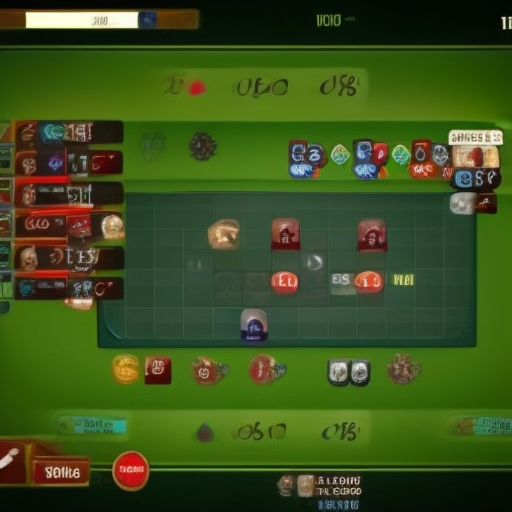Are you an armchair Poker enthusiast? Do you think playing Poker is purely based on skill or is it a game of luck? This article will analyse the argument “Is Poker a 100% skill?” and delve into the differences between the skill and luck elements to this classic card game.
What is Poker?
Simply put, poker is a popular card game that involves strategy, skill, probability, and psychology. Unlike most casino games, poker is not solely based on luck. In fact, good players can consistently make money in the long run by making smart decisions based on the information they have available.
In poker, players take turns betting, calling, raising, and folding to compete for each other’s chips. The winner is typically the player who holds the best five-card hand, or the last player standing after all others have folded. With its broad appeal and numerous variations, such as Texas Hold’em, Omaha, and Seven-Card Stud, poker has become a global sensation that attracts both recreational and professional players alike. Whether you’re playing for fun or to make a living, poker offers endless opportunities for skill-based decisions, social interaction, and mental challenge. So why not give it a try and see if you have what it takes to succeed at the table?
The Role of Luck in Poker
It’s the age-old debate in poker circles: what role does luck play in the game? Some players swear by strategy and skill, while others point to the randomness of the cards as the real determining factor. The truth is, poker is a complex game that encompasses both factors, and understanding the role of luck can help players make better decisions at the table.
Take the 2016 World Series of Poker Main Event, for example. After months of grueling tournaments, the final table came down to two players: Qui Nguyen and Gordon Vayo. Vayo had played incredibly well and was favored by many to take the title, but Nguyen caught fire at just the right time, catching a series of lucky cards that propelled him to victory. While Nguyen undoubtedly had the skills to compete at that level, it was ultimately luck that sealed his victory and earned him a $8,005,310 payday.
Advantages to Having Skill in Poker
When it comes to poker, many people just see it as a fun game to play with friends or as a way to kill time at the casino. But did you know that having skill in poker can actually be quite advantageous? Here are a few reasons why:
You can earn money: Yes, you read that right! If you have the skill to consistently win at poker, you can make a lot of money. Take the World Series of Poker, for example. The main event winner in 2019 took home over $10 million dollars! And while you might not become a millionaire overnight, even winning a few hundred dollars here and there can be a great way to supplement your income. Plus, the more skill you have, the more you can potentially earn.
It can improve your decision-making: One of the key skills in poker is being able to make good decisions quickly. This is especially true in fast-paced games like Texas Hold’em, where you only have a few seconds to decide what to do. By practicing and honing your skills in poker, you can become better at thinking on your feet and making good decisions under pressure. This can translate into other areas of your life as well, such as in your career or personal relationships. Plus, it’s always a good feeling to know that you’re capable of making smart choices, no matter the situation.
Impact of Skill on Poker Performance
Honestly, the is huge. Sure, there are a lot of factors that contribute to winning at poker, like luck and reading your opponents, but having good old-fashioned skill is what separates the amateurs from the pros. Just like in any sport, you gotta put in the work to get better.
One of the most important skills you need for poker is knowing the odds. You can’t just hope to get a good hand every time, you gotta know what to do when the odds are stacked against you. That’s why it’s so important to learn the odds of different hands and different situations. You also need to be able to read your opponents and know when they’re bluffing or when they really have a good hand. Being able to calculate your pot odds and decide when to fold or when to call is key to any successful poker game. And that’s the beauty of poker – it’s not just a game of chance, it’s a game of skill. With practice and focus, you can improve your poker skills and become a better player. So, keep grinding and never give up! Overall, it’s difficult to definitively say that poker is a 100% skill game or that it’s a combination of luck, knowledge, and strategy. Every game is different and every player has a unique style that can be put to the test. Ultimately, all that can be said is that, in poker, there’s something for everyone and whatever route is taken, it all comes down to having a little luck, knowing one’s strategy and gambling skillfully.